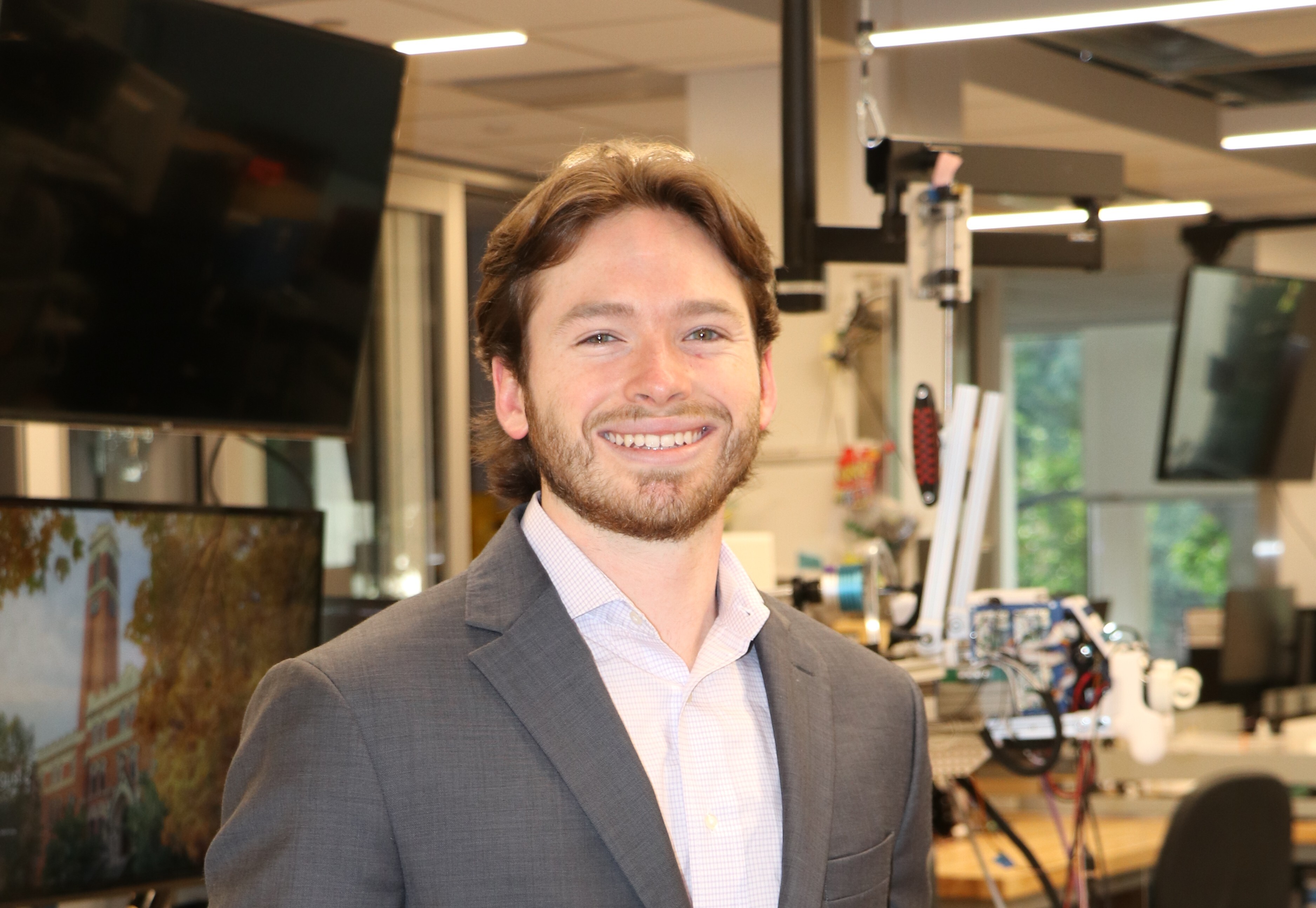
Are you an undergraduate student with a passion for engineering and a desire to innovate in the medical field? Vanderbilt University's Master of Engineering in Surgery and Intervention (MESI) program offers a unique opportunity to bridge the gap between engineering and clinical practice. To give you an insider's perspective, we sat down with Bryce Perrien, M.E., a recent MESI graduate who has successfully transitioned into a career as a staff engineer at VoluMetrix.
A Diverse and Flexible Learning Experience
Bryce's journey to MESI began with his background in Chemical Engineering. He was drawn to Vanderbilt by the opportunity to learn and research at a prestigious institution. "My initial draw was definitely the opportunity to learn while taking classes in a wide variety of disciplines," Bryce recalls. The program's flexibility allowed him to tailor his schedule to his goal of working in medical device development. By leveraging courses across Mechanical Engineering, Computer Science, Chemical Engineering, and Biomedical Engineering, Bryce built a foundational understanding of the elements he now uses daily in his career.
Immersive Clinical Experience
One of the most impactful aspects of MESI for Bryce was the clinical immersion experience. "This experience is what I looked forward to the most coming into this program, and it is what I left the program feeling the most grateful for," he says. The clinical immersion pulled him out of his comfort zone, exposing him to various clinical disciplines and the problems they face. This hands-on experience, combined with insightful conversations with clinicians and classmates, opened Bryce's eyes to the process of creating solutions to real-world problems.
Professional Development and Marketability
The program's professional development requirements also played a crucial role in Bryce's success. "Professional development greatly impacted my marketability - from presentation skills, to interview skills, even to furthering relationship skills with colleagues," he explains. These skills have proven invaluable in his current role and throughout his career.
Design Experience and Career Transition
A highlight of MESI for Bryce was the design experience, where he worked on solving the problem of detecting peripheral intravenous catheterization failure. From verifying the problem through Key Opinion Leader Interviews to developing a prototype and a written mock grant, Bryce gained hands-on experience that was instrumental in his career transition. "Through this design experience, I was able to immediately transition into my current position upon graduation," he shares.
Advice for Future Students
Bryce's advice for prospective MESI students with goals similar to his is to expose themselves to as many courses and opportunities as possible. "I took a wide range of courses, some of which more directly relate to my current day-to-day than others, but each and every one played a role in my ability to be where I am now," he notes. Learning from passionate professors and engaging in diverse coursework stimulated growth in his own passions and prepared him for a successful career in medical device development.
If you are ready to take your engineering skills to the next level and make a meaningful impact in the medical field, consider applying to Vanderbilt's Master of Engineering in Surgery and Intervention program. Just like Bryce, you can transform your education into a rewarding career in medical innovation.


